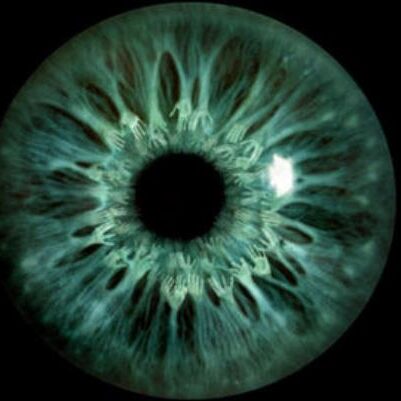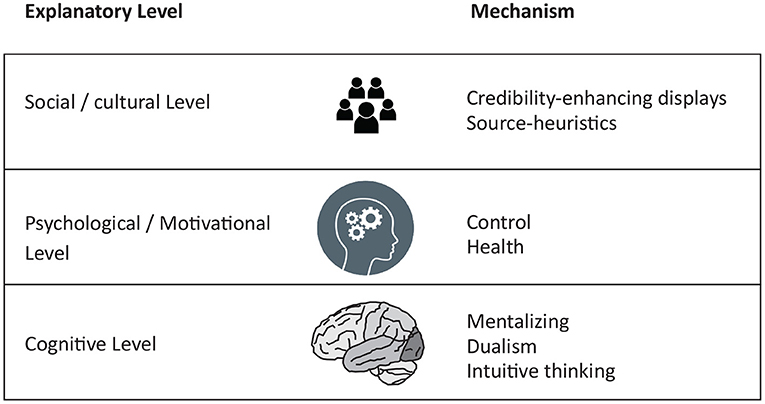In this article, we will explore the fascinating topic of how paranormal beliefs can have an effect on both our behavior and our mental health. We’ll examine the ways in which these beliefs can shape our actions, decisions, and perceptions, and the potential consequences they may have on our overall well-being. From superstitions to ghost stories, we’ll delve into the psychological aspects of paranormal beliefs and help you understand their influence on our lives.
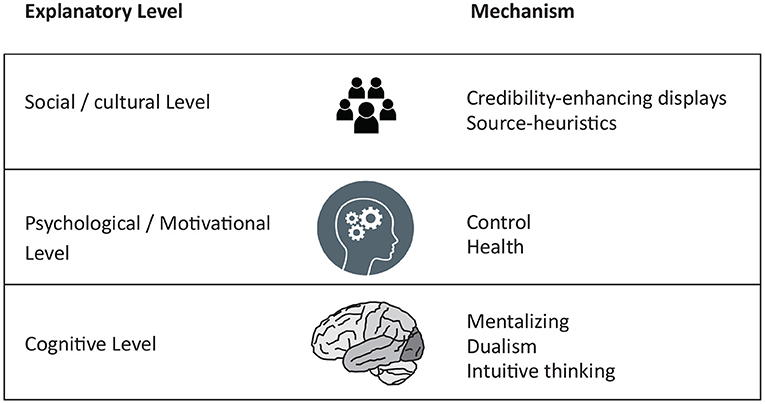
Understanding Paranormal Beliefs
Paranormal beliefs refer to the acceptance of phenomena that cannot be explained by scientific theories and natural laws. These beliefs often revolve around spiritual and supernatural concepts, such as ghosts, astrology, psychic abilities, and supernatural beings. While some individuals may view paranormal beliefs as harmless or entertaining, it is important to recognize the potential impact they can have on people’s behavior and mental well-being.
Defining Paranormal Beliefs
Paranormal beliefs encompass a wide range of phenomena that deviate from the norms of scientific understanding. These beliefs can vary across cultures and societies, reflecting the specific beliefs and traditions of different communities. Examples of paranormal beliefs include the belief in haunted houses, the existence of extraterrestrial life, and the power of talismans or amulets.
The Influence of Culture and Society
The development of paranormal beliefs is significantly influenced by culture and society. Cultural factors, such as religious beliefs and societal norms, can shape an individual’s perception of paranormal phenomena. For instance, in some cultures, the belief in spirits and ghosts is deeply rooted in religious practices and folklore, leading to a higher acceptance of paranormal beliefs.
Moreover, societal factors, such as media portrayals and peer influences, can also contribute to the adoption of paranormal beliefs. The portrayal of paranormal phenomena in movies, TV shows, and books can create a sense of fascination and intrigue, leading individuals to explore and embrace these beliefs.
Different Types of Paranormal Beliefs
Paranormal beliefs can be categorized into various types, depending on the nature of the phenomenon. Some common types of paranormal beliefs include:
- Ghosts and spirits: Believing in the existence of disembodied spirits or the ability to communicate with the deceased.
- Psychic abilities: Accepting the notion that certain individuals possess extrasensory perception (ESP) or the ability to foresee future events.
- Astrology: Believing that celestial bodies and their positions can influence an individual’s personality traits and future.
- UFOs and aliens: Adopting the belief in extraterrestrial life and unidentified flying objects.
- Supernatural beings: Believing in the existence of mythical creatures, such as vampires, werewolves, and fairies.
Individuals may hold varying degrees of belief in these phenomena, ranging from casual interest to true conviction. The intensity of the belief can significantly impact how it influences behavior and mental health.
Psychological Factors Associated with Paranormal Beliefs
Cognitive Biases and Heuristics
One of the key psychological factors contributing to paranormal beliefs is cognitive biases and heuristics. Cognitive biases are mental shortcuts that individuals use to simplify complex information processing. In the context of paranormal beliefs, these biases can lead to errors in perception and judgment.
For example, confirmation bias refers to the tendency to seek and interpret information in a way that confirms one’s preexisting beliefs. If an individual strongly believes in the existence of a haunted house, they may interpret ambiguous events or experiences as paranormal phenomena, confirming their belief.
Similarly, heuristics, such as availability heuristic and representativeness heuristic, can influence the evaluation of paranormal claims. The availability heuristic leads individuals to overestimate the prevalence of events or experiences that are easily recalled from memory. The representativeness heuristic involves classifying events or experiences based on their resemblance to stereotypical representations. These heuristics can lead to the acceptance of paranormal beliefs based on limited or biased information.
Need for Control and Certainty
Paranormal beliefs can also be influenced by individuals’ need for control and certainty. The belief in supernatural powers or forces provides a sense of control over otherwise unpredictable or uncontrollable aspects of life. People may turn to paranormal beliefs as a way to cope with uncertainty or to regain a sense of power in challenging situations.
Additionally, paranormal beliefs can provide individuals with a sense of certainty in an uncertain world. Believing in a higher power or supernatural forces can provide comfort and meaning, especially during times of distress or when facing existential questions.
Tendency towards Magical Thinking
Magical thinking is a cognitive process characterized by the belief that one’s thoughts, actions, or behaviors can influence events or outcomes that are probabilistically unrelated. This tendency towards magical thinking can contribute to the adoption of paranormal beliefs.
Individuals who engage in magical thinking may perceive patterns or connections between unrelated events, leading them to attribute causal relationships to supernatural or paranormal factors. For instance, someone may believe that carrying a lucky charm can bring them good fortune, despite no logical connection between the two.
Behavioral Effects of Paranormal Beliefs
Superstitious Behaviors
Paranormal beliefs can lead individuals to engage in superstitious behaviors. Superstitions are irrational beliefs or rituals that are believed to bring good luck or prevent misfortune. Common superstitious behaviors include avoiding certain actions or objects believed to be unlucky, seeking specific rituals or charms for protection, or attributing success or failure to supernatural forces.
These superstitious behaviors can have both positive and negative effects. On one hand, they can provide individuals with a sense of control and comfort. On the other hand, they can also reinforce irrational beliefs and lead to the avoidance of logical reasoning or evidence-based decision-making.
Harmful Coping Mechanisms
In some cases, paranormal beliefs can serve as maladaptive coping mechanisms. When faced with stressful or traumatic experiences, individuals may turn to paranormal beliefs as a way to cope with their emotions and make sense of their experiences.
However, relying solely on paranormal beliefs to cope with distress can hinder individuals from seeking appropriate help or engaging in evidence-based interventions. This can perpetuate a cycle of avoidance and reliance on irrational beliefs, potentially exacerbating mental health issues.
Impact on Decision-Making
Paranormal beliefs can influence individuals’ decision-making processes. When faced with uncertain or ambiguous situations, individuals who hold strong paranormal beliefs may rely on supernatural explanations or guidance to make choices.
For example, a person who strongly believes in astrology may consult their horoscope before making important decisions, such as career choices or relationship dynamics. This reliance on paranormal guidance can undermine the importance of critical thinking, evidence-based decision-making, and personal accountability.
The Role of Rituals
Rituals play a significant role in paranormal beliefs, providing a structured way to engage with supernatural phenomena. Rituals can involve specific actions, such as lighting candles, chanting incantations, or performing specific gestures, with the belief that they will invoke certain outcomes or satisfy supernatural entities.
These rituals can bring individuals a sense of comfort, control, and connectedness to something greater than themselves. However, when rituals become rigid or compulsive, they can interfere with daily functioning and exacerbate anxiety or obsessive-compulsive tendencies.
Paranormal Beliefs and Mental Health
Relationship with Anxiety Disorders
Paranormal beliefs have been associated with anxiety disorders, particularly those characterized by excessive worry and fear. Individuals who hold strong paranormal beliefs may be more susceptible to experiencing anxiety symptoms related to perceived threats from supernatural entities or events.
For example, a person who believes in malevolent spirits may constantly worry about potential hauntings or demonic possession. These beliefs can contribute to heightened anxiety, distress, and impaired quality of life.
Contribution to OCD Symptoms
Paranormal beliefs can also contribute to symptoms of obsessive-compulsive disorder (OCD). OCD is characterized by intrusive thoughts and repetitive behaviors performed in an attempt to reduce distress or prevent perceived harm.
In individuals with paranormal beliefs, obsessions may revolve around the fear of supernatural entities or the need to engage in specific rituals or behaviors to ward off harm. For example, a person with paranormal beliefs may engage in repeated rituals, such as checking doors and windows multiple times, to protect themselves from potential malevolent spirits.
Associations with Psychotic Disorders
While paranormal beliefs are distinct from psychotic experiences, there can be overlap in certain cases. Psychotic disorders, such as schizophrenia, may involve delusions or hallucinations related to supernatural or paranormal phenomena.
Some individuals with psychotic disorders may believe they have special powers or abilities, are being controlled by supernatural forces, or have direct communication with paranormal beings. It is important to note that these beliefs are a result of the underlying psychotic disorder and require appropriate diagnosis and treatment.

Psychosocial Implications of Paranormal Beliefs
Social Alienation and Stigma
Paranormal beliefs can lead to social alienation and stigma, particularly when they deviate significantly from mainstream scientific or religious beliefs. Those who hold strong paranormal beliefs may face ridicule, skepticism, or exclusion from social groups.
This social alienation can have a negative impact on individuals’ overall well-being, leading to feelings of isolation, low self-esteem, and a reluctance to express their beliefs openly. It is essential to foster an environment of acceptance and open-mindedness, allowing individuals to share their experiences and beliefs without fear of judgment or rejection.
Effect on Interpersonal Relationships
Paranormal beliefs can also affect interpersonal relationships, particularly when one person holds strong paranormal beliefs while others do not share the same convictions. Conflicts can arise when individuals with differing beliefs try to navigate shared experiences or make decisions based on conflicting perspectives.
These conflicts can lead to strained relationships, misunderstandings, and a breakdown of effective communication. It is important for individuals to approach these differences with empathy, respect, and a willingness to engage in open dialogue to foster understanding and mutual respect.
Influence on Identity Formation
Paranormal beliefs can also influence an individual’s sense of identity and belonging. In some cases, a strong belief in the paranormal can become a core aspect of one’s identity, shaping their values, priorities, and worldview.
Identifying strongly with paranormal beliefs can provide individuals with a sense of meaning, purpose, and community. However, it is important to encourage individuals to develop a balanced and integrated sense of self that acknowledges the complexity of human experiences and the limitations of paranormal explanations.
Paranormal Beliefs in Therapy and Treatment
Challenges in Diagnosis
Addressing paranormal beliefs in therapy can present unique challenges for mental health professionals. On one hand, acknowledging and respecting individuals’ beliefs is crucial for establishing a therapeutic alliance and providing a safe environment. On the other hand, it is important to promote critical thinking and evidence-based interventions to support individuals’ mental health and well-being.
Therapists should approach paranormal beliefs with sensitivity, recognizing that these beliefs may have deep personal significance for clients. Open dialogue, empathetic listening, and evidence-based education can help individuals explore and critically reflect on their beliefs more effectively.
Addressing Misattributions and Superstitions
Therapy can provide individuals with an opportunity to explore the origins and meaning of their paranormal beliefs, as well as challenge misattributions and superstitions. Cognitive-behavioral therapy (CBT) approaches can help individuals identify cognitive biases and develop more rational thinking patterns, promoting critical thinking and rationality.
By addressing misattributions and superstitions, individuals can develop healthier coping mechanisms, improve decision-making skills, and reduce the negative impact of paranormal beliefs on their mental health.
Promoting Critical Thinking and Rationality
Therapists can play a crucial role in promoting critical thinking and rationality when addressing paranormal beliefs. By providing accurate information about scientific research, logical fallacies, and cognitive biases, therapists can help individuals develop a more balanced and evidence-based understanding of paranormal phenomena.
Therapy can also incorporate a focus on building personal resilience, self-reflection, and self-compassion. Developing these skills can help individuals navigate the complex interplay between personal beliefs, societal influences, and mental health.
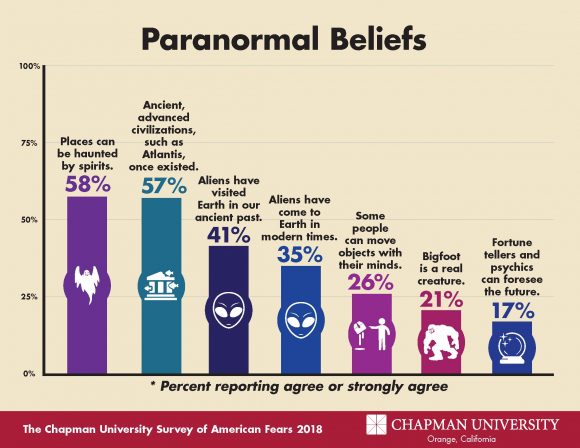
Coping Strategies for Negative Paranormal Experiences
Supportive Therapeutic Approaches
Therapeutic approaches that focus on providing support and validation can help individuals cope with negative paranormal experiences. These experiences can range from perceived hauntings and encounters with supernatural beings to fears of psychic attacks or demonic possession.
By creating a safe and non-judgmental space, therapists can allow individuals to explore and express these experiences, helping them process their emotions and develop healthy coping strategies. Acceptance, validation, and validation of individual experiences can contribute to a more balanced understanding of the self and the impact of paranormal beliefs.
Empowering Individuals through Education
Education plays a vital role in empowering individuals to critically evaluate and reflect on their paranormal beliefs. By providing accurate and scientifically-based information, individuals can gain a better understanding of the limitations of paranormal explanations and the importance of evidence-based approaches.
Encouraging individuals to engage in independent research, read reputable sources, and develop a well-rounded understanding of various perspectives can help them make informed decisions and reduce the negative impact of paranormal beliefs on their behavior and mental health.
Engaging in Open Dialogue
Open dialogue and respectful discussions about paranormal beliefs can also contribute to individuals’ well-being and emotional growth. By facilitating conversations that acknowledge different viewpoints, therapists can help individuals explore their beliefs, challenge assumptions, and develop a more nuanced understanding.
Engaging in open dialogue can foster mutual respect, empathy, and understanding among different individuals, allowing for personal growth and the development of critical thinking skills.
Debunking Paranormal Myths and Pseudoscience
Understanding Logical Fallacies
Logical fallacies are flawed reasoning patterns often used to support paranormal beliefs and pseudoscientific claims. By understanding common logical fallacies, individuals can approach paranormal claims more critically and identify flawed arguments.
For example, the appeal to authority fallacy occurs when individuals accept paranormal claims based solely on the authoritative status of the person making the claim, rather than evaluating the evidence or reasoning provided.
Examining Scientific Research
Examining scientific research is essential for debunking paranormal myths and pseudoscience. Scientific studies use rigorous methodologies, peer review, and evidence-based approaches to investigate phenomena and develop accurate explanations.
Encouraging individuals to critically evaluate scientific studies and understand the scientific method can help them differentiate between credible research and pseudoscience. By relying on accurate and verified information, individuals can make more informed decisions and reduce the influence of unfounded paranormal beliefs.
Promoting Skepticism and Scientific Literacy
Promoting skepticism and scientific literacy is crucial to fostering critical thinking and debunking paranormal myths. Skepticism involves questioning and evaluating claims based on evidence, logical reasoning, and scientific principles.
By encouraging individuals to question paranormal claims, investigate alternative explanations, and develop a strong foundation in scientific literacy, therapists can empower individuals to evaluate information, challenge assumptions, and make well-informed decisions.
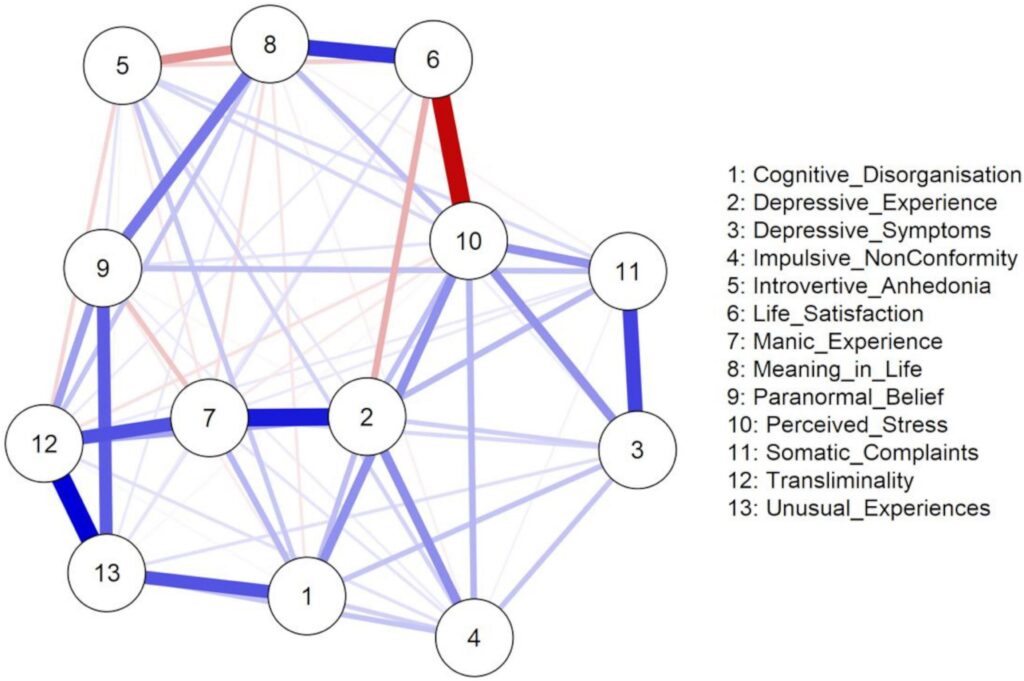
The Influence of Media and Entertainment on Paranormal Beliefs
Portrayals of the Paranormal
Media and entertainment play a significant role in shaping public perceptions and beliefs about the paranormal. Movies, TV shows, books, and online content often portray supernatural phenomena in a sensationalized manner, blurring the line between reality and fiction.
These portrayals can create a sense of excitement and curiosity about the paranormal, leading individuals to explore and adopt paranormal beliefs. However, it is important to recognize that media representations are often dramatized and not representative of scientifically validated evidence.
Distorted Perception of Reality
Exposure to paranormal content in media and entertainment can lead to a distorted perception of reality. Individuals who consume excessive amounts of paranormal content may struggle to differentiate between fictional narratives and real-world experiences.
This distorted perception can contribute to the acceptance of unfounded paranormal beliefs, as individuals may base their understanding of the world on fictional or sensationalized portrayals rather than empirical evidence or logical reasoning.
Responsibility of Media and Entertainment Industry
The media and entertainment industry bears a responsibility to portray the paranormal in a responsible and accurate manner. Balancing entertainment value with scientific accuracy and critical thinking can help prevent the perpetuation of unfounded beliefs and pseudoscience.
By promoting skepticism, scientific literacy, and accurate representations of the paranormal, media and entertainment creators can contribute to a more informed and critical audience, fostering the development of well-rounded perspectives.
Conclusion
Paranormal beliefs can have a significant impact on people’s behavior and mental health. Understanding the psychological factors associated with these beliefs, the behavioral effects they can have, and their implications for mental health is crucial for promoting critical thinking, mental well-being, and informed decision-making.
By addressing paranormal beliefs in therapy, promoting open dialogue, and fostering scientific literacy, individuals can develop a more balanced understanding of the world, reduce the negative impact of paranormal beliefs on their behavior and mental health, and promote overall well-being.
Recognizing the influence of paranormal beliefs, supporting individuals in critically evaluating their beliefs, and encouraging the exploration of evidence-based explanations are essential steps in promoting critical thinking, rationality, and mental health.
